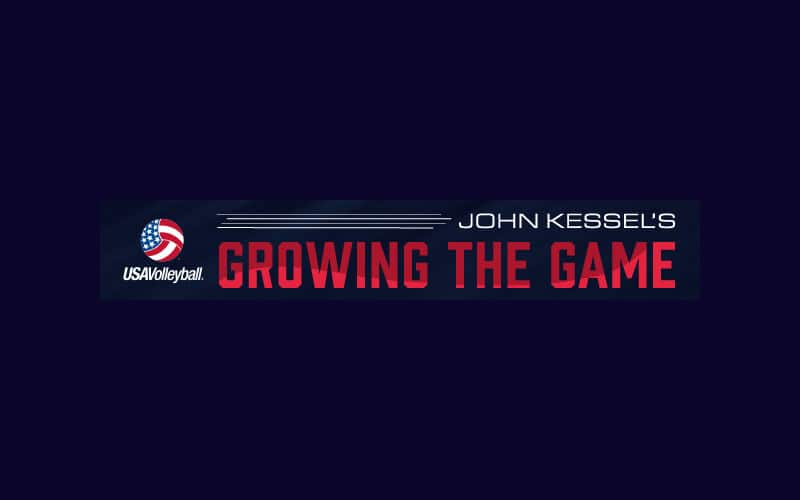
Sorry for the long break in postings - with two kids in teen sports (volleyball and lacrosse) both in state playoffs and finals almost upon us (and proms, who can forget THAT cultural right of passage...) and getting ready for the important USA Volleyball annual meetings, time to free range think has been crimped. I will be posting more now, and wanted to first start with yet another new read - Daniel Coyle's, The Talent Code: Greatness Isn't Born. It's Grown. Here's How.
Like Outliers, you simply must put this book on your nightstand and READ it.
Have you ordered it online yet? Hey, what is taking you? You will find it making you think in several areas of import to growing our sport and helping kids become Citius, Altius, Fortius. The author went on journeys, to soccer fields in Brazil, a Dallas music school of excellence, and KIPP schools (Knowledge is Power Program - (www.kipp.org) to see with his own eyes what Dr. K. Anders Ericsson brought to our awareness from his Florida State offices researching effective practice. Coyle goes even a bit deeper, pun intended, by calling it "Deep Practice" due to the internal effects on our myelin that positively improve one's performance. He also points out the importance of passion - as previously seen in the value of "street volleyball" - for both "Ignition" and sustainment of the hours it takes to get great. Tying into implicit learning, Coyle says it this way - "Where deep practice is a cool, conscious act, ignition is a hot, mysterious burst, an awakening." Finally, there is mentoring as we have seen done so well in the men's side of USA Volleyball, with Carl McGown, Doug Beal, Marv Dunphy, and others helping guide Hugh McCutcheon and now Alan Knipe. I just crossed paths in a gym at State Districts with Craig Buck (whose son Jason was playing against Cody) and was reminded how there, not just a master coach was helping develop talent, but how each every player in the program, starting with Karch and the whole 1984 gold medal team, through the competitive cauldron and teammate interactions, helped the talent blossom. Coyle calls it "master coaching" for the talented performers, with those skilled at bringing forth the talent within. As we teach the players to problem solve without us, they too become master coaches...
So what does this mean for each of us? I think first, it reinforces the importance of first helping kids develop a LOVE OF THE GAME. Simple but a cornerstone to our ways of training and competing. I just did a Positive Coaching Alliance piece for a new DVD being shot by the amazing Mark Millon. For those of you who do not know lacrosse, he is one of the long time superstars of the sport, and I helped him shoot a DVD that his sponsor is helping him distribute at low cost ($10) to all the youth lax players and coaches. I spoke about the PCA and Honoring the Game - which we use the term ROOTS, to help everyone remember to respect the Rules, Opponents, Officials, Teammates, and Self. My last line? "Never be a child's last coach..." for we are to do all we can, to help these young players love physical activity and playing/competing and being a great teammate. BTW, there is a new PCA topic (reprinted on the Kingston Soccer Club website) on how coaches should handle cutting players from a team at http://kingstonsc.goalline.ca/page.php?page_id=33596.
I also think it means to give time to focus on those things that INSTILL IMPLICT LEARNING, including guided discovery and Socratic coaching as we talk about in IMPACT clinics. It means continuing to fan the flames of self learning by playing more doubles, and more "speed ball" and queen of the court- while being there to teach and guide. A PLAYS (Pipeline Leadership for America's Youth Sports) working group meeting in Denver last week brought to my attention to another group working to redefine the role of youth sports Up 2 Us...www.up2us.org. Executive Director Paul Caccano sent me a copy of Ann Rosewater's great booklet - "Learning to Play and Playing to Learn" which you can get by signing up with the Team up for Youth Program. With Promise of Good Sports (www.promiseforgoodsports.org) led by Festival Founder Dave Epperson, the National Alliance for Youth Sports (www.nays.org) and the National Coalition of Youth Sports (www.ncys.org) there are many wonderful paths to helping become a better teacher of any sport - volleyball especially.
And finally, it means to remember to let your kids coach others, so they become better players. For the coaches reading this, it means to seek out those who might help you yourself be a better coach - starting with CAP and other coaching courses. It also means looking to have someone, perhaps a person even not involved with volleyball but an expert in another sport, come watch your practices and give you feedforward. Note that this means that just like you give the players immediate feedback as they perform their skills in games and drills, you would be getting this same kind of feedfoward. You might be lucky to get it while you are on the court teaching, right in front of the players (for immediate and frequent feedback is best) - along with delayed feedback that comes from going out to dinner afterwards to talk, or sitting around a gym after practices openly discussing any and everything with the intent to improve.

